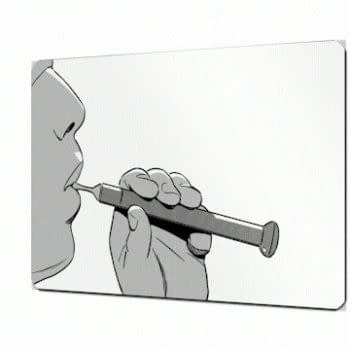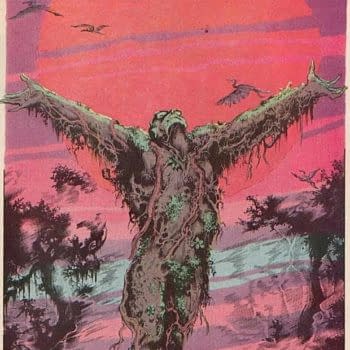Posted in: Comics | Tagged: amazon, Comics
Amazon Is Destroying The Comics Industry In A Brand New Way
Ever since Amazon started to get big, it has been critiqued by the comic book industry, even as Amazon sells more graphic novels than anyone else. Previous complaints have included that the discounts they offer can kill comic book stores' ability to compete. While the purchase of ComiXology, and its current integration into Amazon's Kindle service, provides a day-and-date competition service that sees ComiXology titles available digitally before they are sold in stores. But now we have a whole new way that Amazon is destroying comics – with its boxes.

And not in the way Penguin Random House has of late. It's all down to the boom in online ordering that was lit on fire by the lockdowns and shutdowns. More people are ordering more things – including comics and books – than ever before, And everything comes in a cardboard box. And what are cardboard boxes made of?
The same wood pulp that is used to make paper. Already rising in price by 25% from 2017 to last year, that has now rocketed again this year by another 15%, with further rises expected. In comparison, paper prices had hardly risen in the previous three decades.
However, paper manufacturing capacity in the US with major printing mills, have reduced production levels, while some have gone out of business. And with Amazon seeing multiple increases in demand for cardboard, without the ability to provide an increased supply, any first-week Economics student will tell you what happens next. The price of cardboard is rocketing. And, as a result, so is the price of paper.
This is not just an American problem. European paper mills generally increase prices earlier in the year by around €60 to €70 a tonne, with a double that rise again expected soon, pushing over €700 a tonne. So importing paper isn't a solution either, especially with the increased shipping costs all over. Paper is heavy, as anyone lifting a full longbox will tell you.
They can't build new printing mills fast enough. Who said that the internet would be the death of print?















